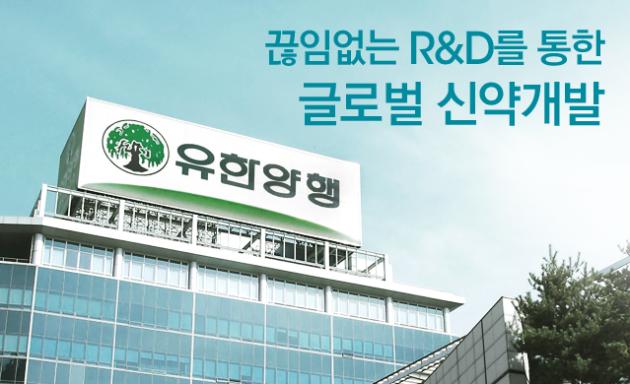
The core of Yuhan’s announcement at ASCO this year is on the latest results for its phase 1 and 2 clinical trials into Lazertinib, a third-generation epidermal growth factor receptor (EGFR)-tyrosine kinase inhibitor (TKI), in patients with EGFR-TKI resistant non-small cell lung cancer.
As of Nov. 26, 2018, clinical phase 1 and2 for Lazertinib involved 127 non-small cell lung cancer patients with mutations in the EGFR gene.
The abstract unveiled by the company showed that the median duration of treatment of the treatment was 9.7 months, with an ORR of 60 percent in all patients, 64 percent in T790M mutation-positive patients, and 37 percent in T790M mutation-negative patients. The intracranial ORR for brain metastases patients with measurable was 50 percent.
The abstract also outlined the PFS of the drug for the first time. PFS was 8.1 months in all patients, 9.5 months in patients with T790M mutations and 5.4 months in patients with T790M mutations.
Notably, an additional analysis of patients receiving doses of Lazertinib 120 mg or higher has led to an increase in PFS of 12.2 months. On the other hand, the most treatment-emergent adverse events were pruritus (27 percent), rash (24 percent), constipation (20 percent), decreased appetite (19 percent) and diarrhea (14 percent).
“Lazertinib was safe, well-tolerated and exhibited promising systemic and intracranial antitumor activity in EGFR T790M+ NSCLC patients,” the company concluded. “Dose extension cohorts in the first- and second-line settings are underway at 240 mg dose.”
Lazertinib is an oral, potent, irreversible EGFR-TKI that is highly selective for activating epidermal growth factor receptor mutant and T790M resistance mutations. Yuhan had transferred its technology to Janssen Biotech, a global pharmaceutical company, for $1.2 billion in November last year.
The company plans to present its poster session on June 2, at Hall A of the McCormick Place in Chicago, Ill.

